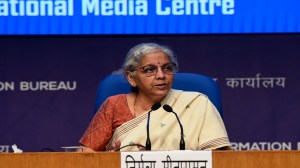Ahead of the full budget for the financial year 2024-25, industry body FICCI in a pre-budget consultation meeting with Finance Minister Nirmala Sitharaman on Thursday urged for revising the qualifying turnover criterion for mandatory registration of companies on the invoice discounting platform TReDS.
Subhrakant Panda, Immediate Past President, FICCI called for revising it to over Rs 250 crore from Rs 500 crore currently.
According to the details available from the MSME Ministry’s dashboard as of May 2, 2024, a list of 5,871 companies having turnover of more than Rs 500 crore was identified by the Corporate Affairs Ministry as on January 31, 2023, of which so far 1,932 companies have registered themselves on the TReDS portal.
More, the government had earlier directed all CPSEs (central public sector enterprises) to get on the TReDS. As of May 2, 196 CPSEs are on TReDS.
Panda also suggested that every tax invoice raised by the GST (Goods and Services Tax) registered MSME unit should reflect automatically on the respective TReDS platform where the MSME unit is registered.
“Such invoices to be made deemed accepted and made available for financial institutions to provide funds to MSMEs,” said Panda.
Moreover, he asked for leveraging the account aggregator (AA) framework for MSME lending by reviewing the legal and compliance issues that prevent joint and corporate accounts from the scope of AA.
Among other key asks by FICCI to Sitharaman were simplifying TDS provisions by laying down a roadmap for rationalization of TDS rate structure to only three rate structures – TDS on salary at slab rate, TDS on lotteries/online games etc. at maximum marginal rate and two standard rates for TDS for different categories.
FICCI also called for easing the capital gains tax regime in terms of two or three broad buckets of different types of assets, holding period for such assets to turn long term, indexation benefit eligibility, LTCG tax rate and STCG tax rate for such assets without distinction between residents and non-residents.
The industry body also asked for GST 2.0 reforms with fewer GST tax slabs including so far excluded sectors and revamping of GST law to have minimal friction in achieving pass through of all input tax credits in the entire value chain.















